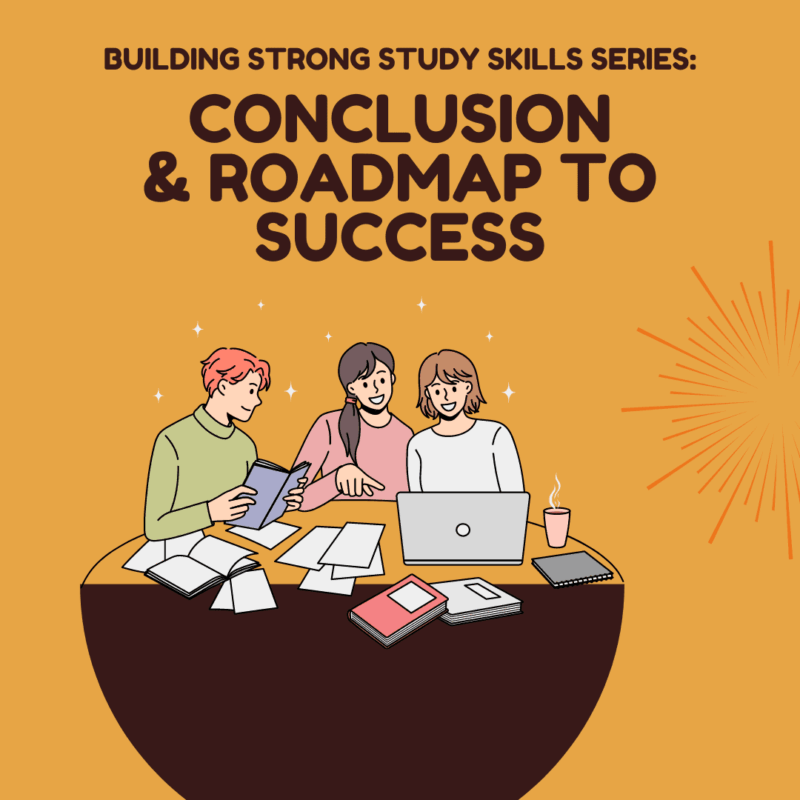Building Strong Study Skills Series: Conclusion & Roadmap to Success
Note: This series details how to study smarter, not harder, to help students succeed in their academics. All information in this series draws upon principles from psychological research on learning and memory.
Over the past 10 weeks, this series covered the most, moderately, and least effective study techniques, according to effect sizes in the literature. This series also covered other helpful study skills.
Study Skills Overview:
Best:
Moderate:
Worst:
- Keywords
- Making Text Summaries
- Making Flashcards (Often, But Not Always)
- Rote Memorization
- Highlighting
- Re-Reading
Helpful Study Skills:
Series Conclusion
Experts recommend that students use a combination of the best and moderate study skills to most effectively learn and retain material. Avoid the worst study techniques at all costs. Use the other helpful study skills in this series to enhance your studying and learning experiences. Good luck on your final exams!
Schedule a session with one of our expert tutors today to receive all the information and guidance you need to gain a deeper understanding of your academics and perform better on your tests! Building effective study habits takes time, so the sooner you get help, the better prepared you will be by the time finals roll around.
Sources:
- Terry, W.S. (2018). Learning and Memory: Basic Principles, Processes, and Procedures, Fifth Edition. New York, Routledge, a Taylor and Francis Group. ISBN 978-1-13-864591-2.
- Rhodes, M.G., Cleary, A.M. and DeLosh, E.L. (2020). A Guide to Effective Studying and Learning: Practical Strategies from the Science of Learning. New York, Oxford University Press. ISBN 978-0-19-021447-0 (pbk).



